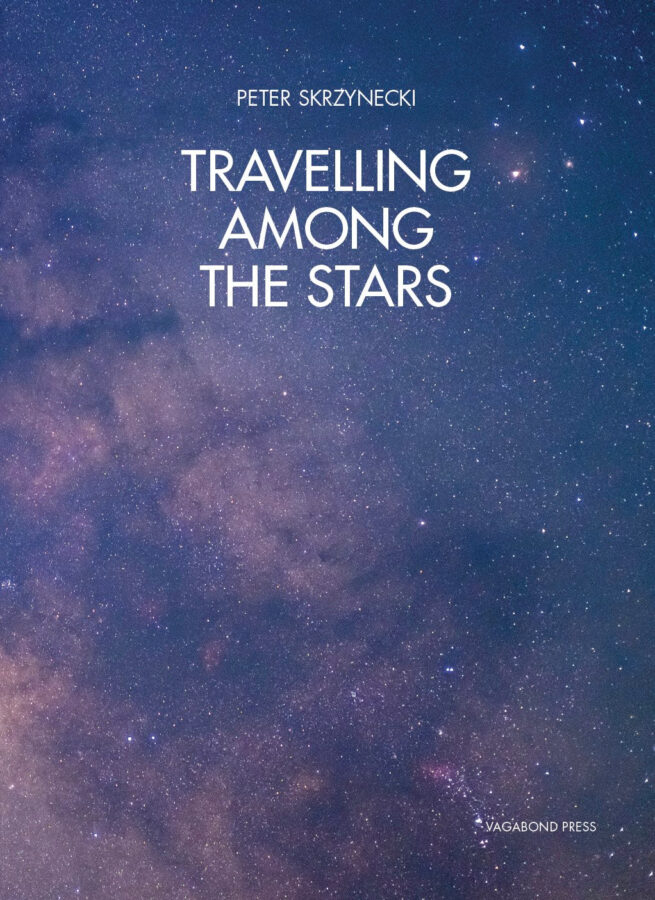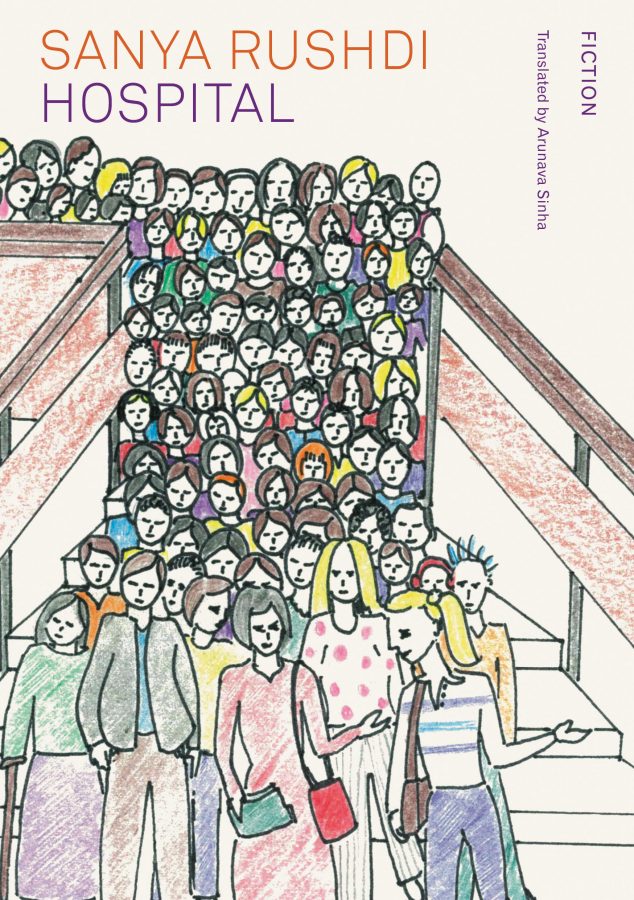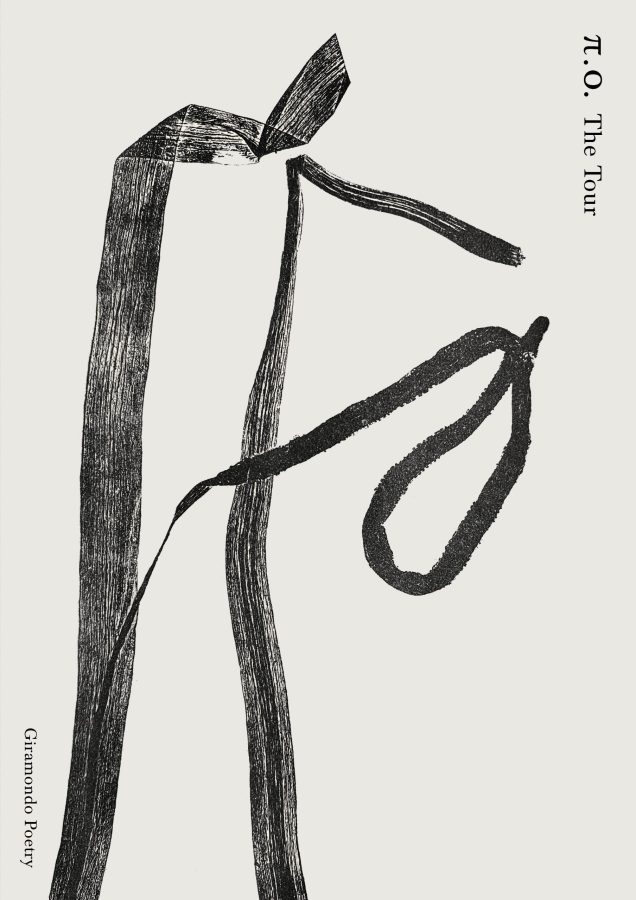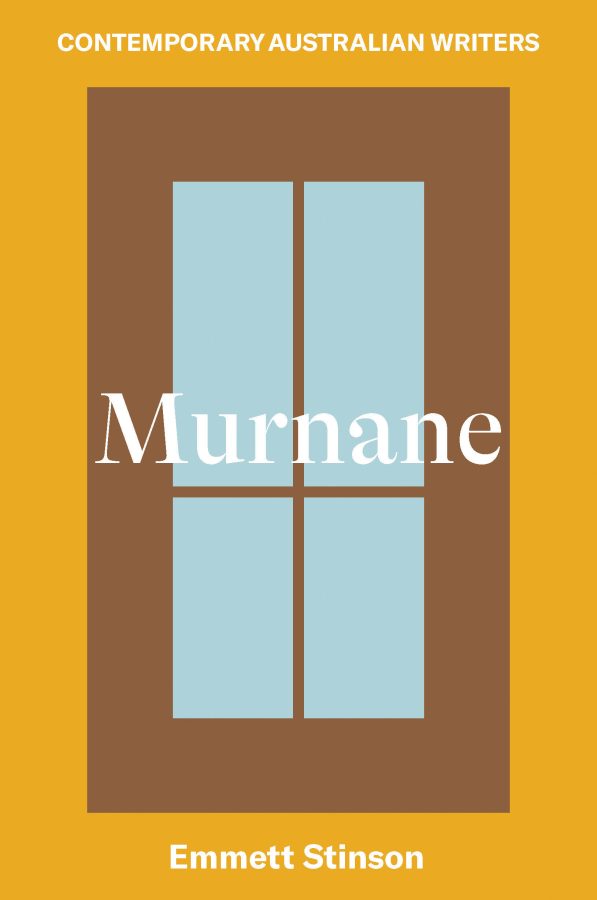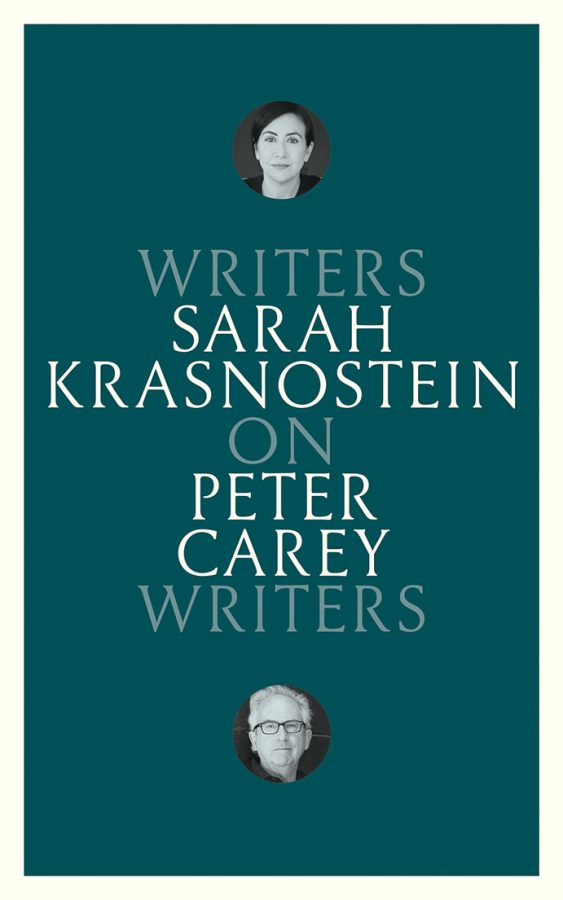Peter Skrzynecki was four years old when he boarded the General R.M Blatchford at Naples in 1949. He was not alone. His mother and adopting father, as well as a host of European compatriots in exile ‘from the sorrow/ Of northern wars’, were there with him negotiating the silence and vastness of the sea for the possibility of a better life in some far-off land over the ‘Equator’ – a land where dreams are fashioned out of water, dust and coloured birds. ‘Crossing the Red Sea’ – a poem that symbolically recounts this journey and that appears in one of Skrzynecki’s early collections – situates the poet’s experiences in a language of exile and displacement. The young speaker recalls a shoreline and pine trees, and the ‘[p]eaks of mountains and green rivers’ that are left behind; he recalls men bartering trust for silence and the ‘gestures/ Of darkness and starlight’ that ‘kept our minds/ Away from the finalities/ Of surrender.’ But the sea is kind. As uncertain as the future may seem, the child does not appear to leave his birthplace with the same heavy heart as the men. Maybe it’s because he has not grown attached to that place, or, and I think this is more plausible, the voyage out for this four-year-old is an adventure. I think that this too is the reason Skrzynecki describes the journey through the concept of rebirth. The sea’s waves, and the sea’s breath recall a primordial presence, and convey the child’s ability to be in the present and in the past all at once – what we might call the now that gives birth to poetic insight. If the men barter trust for silence, Skrzynecki leans in, as poet (first), as child (second), and barters that very silence for the possibility of telling his story – a story that will span the length of his life.
Travelling Among the Stars is a long way from the adventures of a young boy crossing the Red Sea with his parents and compatriots, but it is very much born out of, and threaded by that adventure. In this new collection Skrzynecki returns his reader to the all-important present. This older and wiser poet is circumspect about the time that has passed since that first journey from Naples and is significantly more skilled at negotiating silences than his four-year-old self. Almost as if in response to the men who bartered trust for silence on the voyage out of Naples, Skrzynecki now attempts to exchange silence for (more) time, for a glimpse at fading or forgotten memories, and for an opportunity to experience the incorporeal, primordial world that calls out to him. Here is a poet who has lived in all preparedness for the ‘impermanence of each day’ (‘Not Always but often Enough’); who has worked out his own salvation and readied his epitaph, seen in these lines from ‘Epitaph’:
Germany, Australia –
where to next?
Soul and body, holding hands,
travelling among the stars.
The irony is that there is no ‘next’, and no past or future, only the now; all that is fleeting is but a sign of something else.
Skrzynecki writes as a storyteller who recalls nature, family, and friends, as well as time and place, with narratological detail. We see a storyteller in poems such as ‘Backyard Walk’, ‘It was the Simplest of Meals’, ‘Zebra Finch’, ‘My Father’s Alarm Clock’ and ‘Jeogla Return’, to name just a few. Some revisit stories Skrzynecki’s readers have heard before. He leads the collection with a poem titled ‘My Dear Father’. It begins:
My dear father –
I write to connect with you
in the life we once shared
in the brief but eternal flashes
imprinted on my memory:remembering the garden
you created with hands and heart –
your knowledge of soil and vegetables,
seasons, fruit trees being unsurpassed.When you married my mother
I knew nothing ofyour circumstances –
that you were once a farmer
and survived five years of forced labour
in Germany under the Nazis;
yet you accepted me,
a boy of two and asked
no questions – becoming
my adopting father and caretaker.
Like St Joseph, a lady friend
once said to my mother.
We already know this story – about the Polish stepfather, Feliks, who married a single mother after the war and adopted her son as his own. Skrzynecki speaks openly about this relationship in his memoir The Sparrow Garden (2004). ‘My Dear Father’ returns to this narrative, but on this occasion writes ‘in gratitude’ to the father ‘for what you shared with us,’ even though ‘[you] asked for nothing in return’. There’s no sentimentality here, which sets up the tone for the rest of the collection. Familiar story or no, Skrzynecki brings new phrases, new ways of looking at the old. He is not a romantic poet, but neither is he a realist – and this address to an absent other seems to situate his poetics somewhere in the middle. The final stanza is worth noting for its use of irony.
You never read poetry.
Today it’s the only spade
I have to turn the soil –
however shakily – from which our lives
grew at 10 Mary Street.
We wonder: would his father read this poem? Is this why Skrzynecki styles the poem as a letter? The answers to these questions appear to lie in the Dickinsonian dashes, which carry the unspeakable. The things left unsaid or in silence are negotiated for one more exchange with the father especially since poetry is ‘the only spade/ I have,’ he says, ‘to turn the soil.’ Is it poetry that keeps the dead alive?
The collection also includes new stories. ‘I was Born in the Mountains’ recalls, with a quiet playfulness, the poet’s origin. It is important in the collection as one of the few poems that tells us something about the type of poet Skrzynecki has become and the place he occupies in the Australian literary consciousness. ‘I was Born in the Mountains’ is written in two parts. The first and longer part contains five stanzas and is set in the past where the speaker tells of being ‘born in the mountains/ in northern Germany, in a region/ known as Das Sauerland’. Skrzynecki writes without pretence or conceit, yet his fallibility as a narrator is noticeable. I think this is deliberate. He toys with us and nowhere more so than in a moment of dialogue with his mother:
Once I said to my mother,
‘I heard a bird singing
when I was born.’
‘You were born at night,’ she said.
‘It must have been before I was born.’
She laughed and walked away.
We, too, laugh in scepticism; but instead of walking away (his mother dismisses his story twice), we are invited to contemplate the possibility of infant consciousness. What makes this poem unfamiliar is the awe and conviction in the speaker’s voice. He says:
The only time I travelled
to Das Sauerland was in 1989 –
when I visited the family
my mother worked as a servant
during World War II.I stood speechless in what had been
her quarters – and recognised
the green and yellow walls
that I saw when I was born.When I told my mother
she dismissed it, saying,
‘You have no way of knowing that.’
Sometimes experience cannot be explained in rational ways, and mothers will not always believe what their children know (or think they know). But poetry has the delightful obligation of amplifying the value of nonsense – and here I’m using the word in the Zen way, non-sense. The speaker of this poem sees (the coloured walls) and hears (the bird singing) at the same time. These are not separate events. We’ve all experienced birth, we just don’t have the capacity to remember. Or, maybe sometimes we do remember – sometimes in an unguarded moment we see ourselves unpeeled, uncensored, undressed, and it reminds us of our birth, but that moment slips by as quickly as it arrives. For Skrzynecki the truth of this experience is in its unspeakableness. The sight of ‘the green and yellow walls’ validates in his earlier memory of a singing bird the expression of existence and the moment in memory when the mind first recognises itself. The bird and the coloured wall in that Goethean sense, are symbols of a fleeting world.
In the second part of the poem, Skrzynecki’s speaker is now in his 70s and no longer recounting story but reflecting on ‘the journey/ my life’s taken from’ Das Sauerland. A broken and aging body takes over, but the mind is still attuned to the now:
In the last light of day
a bird was singing in
the front garden’s frangipani tree –
its song threading its way
through green and yellow leaves.
Despite his mother’s incredulity, Skrzynecki is in awe of the human ability to exceed the bounds of time and place and connect with the natural world. We begin in nature, we end there, too. The bird reminds us of this equation. The complex interplay of memory and time, place and circumstance in this poem shows how humans and nature are threaded together. In this new writing, if nowhere else, Skrzynecki is a nature poet; his speakers hold the natural world and the world of family and duty in equally high esteem. He is as much enamoured with the land that adopted him as he is with the family – the mother and father – that supported him through his writing. It is only fitting that he should tell their stories, in familiar and unfamiliar ways.
Yet, just because Skrzynecki is a storyteller, we should not mistake this new collection for a linear narrative – that is, a narrative about a man who, as a boy, boarded a ship with his family at Naples and spent two years in a migrant hostel in Parkes before he settled in Regents Park, New South Wales, with his parents; who became teacher, poet, father, and grandfather. Something is different about this new collection and that something is the poet’s preoccupation with incorporeal matters. The cover design – the purple hue of the Milky Way in the night sky – might, at first, have us question whether we are reading Skrzynecki at all. Skrzynecki rarely leaves earth, nature, or people behind, but with this cover design we are invited to soar away with him into stellar territory, where silence diffuses through space, and earth is a white dot among a zillion other stars in the black sky. ‘When one falls’, the poet’s mother tells him in ‘Stars’, ‘It means that someone died./ Their soul is travelling/ over the horizon and going/ on a journey to heaven’. We can see who Skrzynecki inherits his imagination from. Skrzynecki knows, however, that looking up does not guarantee answers to the big questions about the self, nature, and the universe. Ghosts, shadows, and memories abound in this new collection; but there is hope and possibility in the remains of childhood and adolescence.
There’s music and song too; the sound of an accordion, lonely and haunting, can be heard between the lines and stanzas. Music, song, and sound make sense only because there is also silence; in Skrzynecki’s new poetry silence is etched everywhere in the recurring images of the elements (water, wind, fire, earth), in monumental time (as in a ticking clock or humming nebuliser), and in the natural world – as in the birds whose ‘fragile bell-notes’ (‘Conversations with Socrates’) are a welcome distraction to a poet who stands ‘under a tree’ watching time flow like a river. When Peter Skrzynecki sings, birds sing back in response, ghosts reveal untold secrets, the stars dance. Silence is broken.
Skrzynecki works most with the idea of silence as sound or song, and conversely, sound as silence. Nowhere is this paradox more apparent than in the poem, ‘The Silence of the Garden’:
The silence of the garden
broken by morning birdsongs –
pigeons, lorikeets and noisy miners
feeding their young in a murraya.The lawn laid out like a carpet
fringed by red geraniums, a purple
China Doll and the first frangipanis
with their tiny shafts of gold.Not much has changed since yesterday
but why would you want it to?
All that laid out for you –
along with family and good health.
There might be the temptation to want more, he continues in the next stanza, but ‘you say nothing and walk/ on – observing the statue/ of a Buddha sitting under a tree.’
The simple act of breathing
lost in a sudden burst of song
from every bird in the garden
to whom the silence also belongs.
A ‘sudden burst of song/ from every bird’ marks the ‘here and now’ in ‘The Silence of the Garden’. Ironically, the world is in constant flux; birds are taking flight, insects are burrowing into holes or feasting on nectar, people are chattering at cafés and cinemas – there is no such thing as dead silence in (human) nature. In space, yes; but not here on earth. Something always interrupts, and that interruption is loaded with sound (or touch, taste, sight) and interpretation. In another poem, ‘My Father’s Alarm Clock’, Skrzynecki questions why he bothered fixing his father’s German-made 1930s alarm clock. The answer is not posterity: ‘I could always hear that bell ringing/ in moments of dead silence.’ Fixing the clock ensures the dead (silence) go on living in sound. There is no silence without song, or sound. The silence does not come first. It’s always there even in the sound. When there is a break, as we understand in human terms, we sit up and listen. Celebrating the breaks is our human duty. This, if anything, is the lesson of Travelling Among the Stars, and we need such lessons in a time when movement and sound is held up (at times, with contempt) against stillness.
In his new writing, Skrzynecki’s lyrical voice is also tied to the symbolic. 112 poems form Travelling Among the Stars. The number is no accident: 1+1+2 = 4. There are four elements, four seasons, four points in a compass. Four represents order and rationality, but we have already seen that Skrzynecki does not always believe in the rational. (‘I was Born in the Mountains’ is testament to that.) Rather, four is about achieving balance and equanimity; it is best represented in his poetry as the ‘inbetween hour’ that ‘arrives before you know it – ’ and that ‘leaves you none the wiser/ but older’. It is the hour of clarity where you see the self and nature or the world as two balanced halves:
You’ve lived another day
and welcomed another evening.
A willie wagtail dances nearby, watching you,
and there are no words to describe
the effect of its scissors-grinder song. (‘The Inbetween Hour’)
This ‘inbetween’ hour is a moment of suspension, a time of negotiation – life (and birth and death) happens in that hour, but we do not see it in that moment that it happens. We see it only afterwards, and only if we are attuned to the moment. There are many in-betweens in Skrzynecki’s new poetry where the poet stands (or sits) in negotiation on a platform that sometimes manifests as a bridge, or a porch, a doorway or even steps. (Read for example the poems ‘Stroke,’ ‘Stopping on the Oaky River Bridge,’ ‘Conversation with Socrates,’ ‘Rain in Jeogla,’ and ‘Crimson Rosellas’.)
To me, the heart and soul of the collection is situated at the half-way mark, dead centre, on page 103 (1+3!), with the poem, ‘From the Porch’. This poem is preceded by ‘Jervis Bay’ and followed by ‘Memories of My Mother’. It’s no accident that the poem ‘From the Porch’ begins at the centre of a divide. The past (defined by ‘winds and sunrises’) and the future (defined by ghosts) hang in the balance. It is the porch at Huskisson that offers the poet the opportunity to quietly reflect on the now and his place in the universe. The porch is also a platform on which the poet negotiates the silence of the afternoon with the noise around him: neighbours, the wind; a ‘dog trots on a leash’, ‘lorikeets, wattlebirds, galahs, peewits’ ‘sing and squabble’ and cockatoos ‘feast/ on the banksia’s woody cones.’ They each represent something to the poet worth mentioning. Then there is the poet, himself:
I drink tea, eat a piece of cake,
read my favourite poets.
Motor vehicles drive past.
Red geraniums watch me
from behind a fence like guardians.
We mean each other no harm.
Huskisson settles into its afternoon routines.
The sun slowly crosses the sky.Peaceful, the afternoons never drag.
Often I wish they’d
never end, as one day they will.
At the end, if I could, I would arrange
the last tableau like this,
here, on the porch –
a book of poems on my lap,
birds, trees, open sky.
Poetry, ‘birds,’ ‘trees,’ and the ‘open sky’ – a quartet on the porch! Why these four? Maybe because birds sing and squabble and are as close to the ethereal world as anything that flies. Trees have a different purpose to birds. For one, their roots are grounded in soil, and they represent death, regeneration, our ancestral roots and links. The open sky is the firmament where the stars hang out, and poetry – well, poetry is immortality. The porch is that middle ground where all these are negotiated. The world of duty and production encroaches on the world of leisure, but this encroachment does not make the afternoons drag. Peacefulness is accomplished in a negotiation with the duties to work, time, and industry. The poem’s preoccupation with temporality is pivotal to the way the collection needs to be read. It is not time or things that hang in the balance. It is our immortality. How will we be remembered? Who will remember us? What will make that remembrance possible. Will a tableau do the trick? This poem tells us how to read the whole collection – on a porch with poetry in our laps, and with song, nature, and the stars in our hearts and souls. The images in this last stanza are especially crucial to that reading. To be left with a ‘book of poems on his lap’ ‘birds’ ‘trees’ and an ‘open sky’ is to go on living even after he becomes dust.
The complex interplay of spatial and temporal worlds, of the elemental and the natural, spiritual (or celestial) and earthly, positions Skrzynecki’s poetry outside those familiar discourses of migration, exile, and displacement that we have come to know of his work. Although he has been vocal about his experiences of migration and displacement in his writing, the unspeakableness of those experiences and of the everyday, and the poet’s willingness to move on from those experiences, is of more interest to him in Travelling Among the Stars than in any of his other collections. How does one negotiate the stories of the past, often silenced through political rhetoric and the moral and cultural climates of our era, for the now? There must be a call first for balance and equanimity, calm and understanding. Skrzynecki is looking for that balance in this new writing and carving out for himself an identity among the Australian literary community as a nature poet, a humanist, a sage. In this new collection, Skrzynecki reinvents himself, or rather, regenerates himself. The poems cry out to be read, just as they cried out to be written; they are looking for you ‘all the time – day, night, when your eyes burn/ from lack of sleep/ or when rain washes them/ unexpectedly/ and you laugh in relief’ (The Poems are Looking for You’). In Travelling Among the Stars Skrzynecki’s past is the present retold in different ways, and the future is not a place some way off in the distance among the stars; it is the stars themselves. In this new collection we are faced with a far more philosophical, contemplative poet who would rather be nowhere else but in the moment doing precious far niente waiting in all-readiness for the next adventure and the next world. Is he ready for that world? This collection tells us he is, and I think he is, but, in the meantime, I also hope he’ll go on writing poems ‘in response/ to the gift’ (‘The Moon Rose and the Wagtail Sang’) the bird’s song has given him. God knows, in a wearisome, all-prose world, we need more poets, and poetry – of the kind that is thought-provoking – is not going to write itself.
